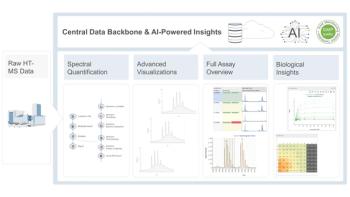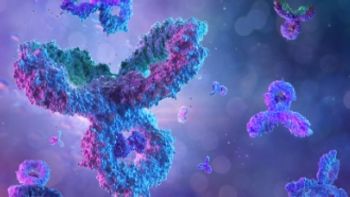
The Latest Innovation of Real-Time, High-Throughput Volatile Impurities Analysis by SIFT-MS
Webinar Date/Time: Airing 1: Tuesday March 14, 2023 at 9am EST | 2pm GMT | 3pm CET Airing 2: Tuesday March 14, 2023 at 2pm EST | 1pm CST | 11am PST
Join us for this web seminar to learn about Syft Tracer, the latest advancement of real-time, trace gas analysis by SIFT-MS which is launching at Pittcon 2023. Hear how the recent product innovations unlock analytical bottlenecks and enable faster decisions to be made in critical process steps.
Register Free:
Event Overview:
SIFT-MS is a direct-injection mass spectrometry technique that provides real-time, selective, and economic analysis of volatile compounds in the gas phase. Syft TracerTM is the next generation of real-time, direct injection mass spectrometry (MS) which is launching at Pittcon 2023. It provides the newest, most sensitive, and most robust platform of SIFT-MS technology.
This webinar demonstrates how the Syft Tracer revolutionizes your lab workflows for volatile impurities analysis by:
- Offering unmatched multi-analyte detection sensitivity
- Reducing sample prep, for example, by eliminating derivatization steps for formaldehyde analysis and slow matrix purification steps for ethylene oxide analysis in Polysorbate 80.
- Analyzing samples much faster, delivering throughputs for headspace analysis of 12 samples/hour, or up to 16 times more samples per day than GC.
- Utilizing Fine Auto Retune to optimize signal levels and Performance Authenticator for superior analytical stability.
- Enabling seamless “mix-and-match” analysis of volatiles of any functionality, using the same instrument configuration.
The webinar will also cover some of the new hardware advancements of the Syft Tracer to maximize system lifetime, even while running in a 24/7 environment. Join us to learn how SIFT-MS is simply faster.
Key Learning Objectives:
- The fundamental features of SIFT-MS (selected ion flow tube mass spectrometry) compared to conventional GC/MS, including its ability to analyze samples selectively and comprehensively in a simple and rapid procedure.
- Combining SIFT-MS with automation provides a very high throughput solution for screening of VOCs and inorganic acids in a number of industries and applications including pharmaceutical and CDMO, consumer safety, and environmental.
Learn how Syft Tracer solves the most difficult analytical challenges while supporting high-throughput environments where 24/7 operation is the standard.
Speakers:
Vaughan Langford, PhD
Principal Scientist
Syft Technologies, New Zealand
Vaughan Langford joined Syft Technologies in 2002 after completing his PhD in Physical Chemistry at the University of Canterbury, and post-doctoral fellowships at the Universities of Geneva, Western Australia, and Canterbury. With an extensive background in diverse applications of SIFT-MS, and over 30 peer-reviewed publications, he provides advanced applications support to SIFT-MS users globally.Leslie Silva, PhDApplications ScientistSyft Technologies, United States
Leslie Silva, PhD
Applications Scientist
Syft Technologies, United States
Dr. Silva graduated from the University of Calgary with a PhD in Biochemistry and Molecular Biology prior to a postdoctoral fellowship at MD Anderson Cancer Center and working as a Senior Research Scientist at Lawrence Berkeley National Laboratory. She led an Analytical Chemistry lab for a Food and Beverage startup in San Francisco for four years before joining the Syft Technologies USA team in October of 2020 as an Applications Scientist. Leslie works closely with both the New Zealand the US-based sales and product development team to develop applications and help customers with their SIFT-MS workflows.
Register Free:
Newsletter
Join the global community of analytical scientists who trust LCGC for insights on the latest techniques, trends, and expert solutions in chromatography.





